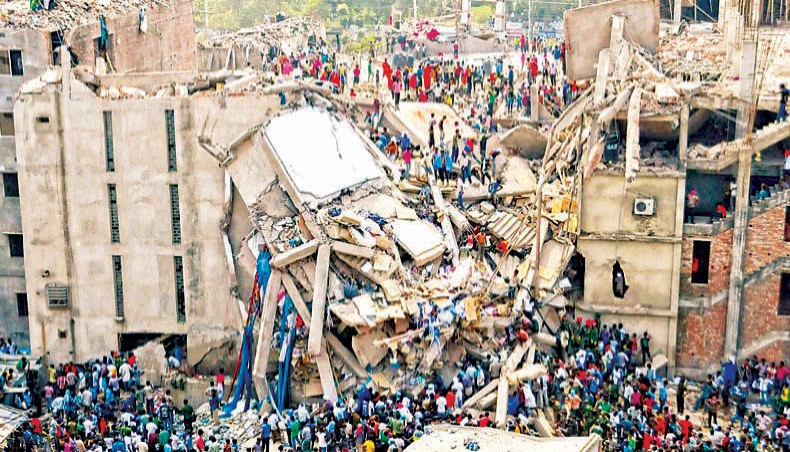
Global investors push brands for workers’ safety

A platform of global institutional investors has urged the global brands and buyers to prioritise workers’ safety in the apparel supply chain.
In a statement on the 10th anniversary of Rana Plaza tragedy, Interfaith Center on Corporate Responsibility, a coalition of 192 global institutional investors, called on the apparel companies sourcing from Bangladesh to strengthen their implementation of human rights due diligence to effectively embed their corporate responsibility to respect human rights.
The Rana Plaza building collapse in April 24, 2013, which killed 1,138 people mostly garment workers and injured another 2,500, was an avoidable tragedy and exposed the human rights risks of outsourcing apparel manufacturing to factories with inadequate safeguards to protect workers, the ICCR said in its statement.
It also called on companies to join the International Accord in Bangladesh to accelerate implementation of human rights due diligence as defined by the UN Guiding Principles on Business and Human Rights in the garment sector.
The investor coalition urged brands to commit to prioritising the health and safety of workers in Bangladesh by the implication of human rights due diligence as defined by the UN Guiding Principles on Business and Human Rights with increased attention given to remedy, in their operations and value chains as part of their corporate responsibility to respect human rights.
It also urged global brands to join the Employment Injury Scheme in the garment sector of Bangladesh, a tripartite initiative that involves the International Labour Organisation, the government, brands, trade unions, and employers, in creating a social protection scheme, including compensation for medical treatment and rehabilitation services, as well as income loss caused by occupational injuries and disease.
The ICCR called on the brands sourcing from suppliers in Bangladesh or with plans to do so in the near future, signing the International Accord.
Following the Rana Plaza building collapse the Accord on Fire and Building Safety in Bangladesh, a legally binding agreement between global brands and unions to reform the sector and create safe factories, was born.
In the past decade, the Accord has established safer factories in Bangladesh for over two million workers through unprecedented collective action, including implementing an effective, legally binding model that has remediated major fire, electrical and structural safety hazards, the investors’ platform said.
It said that in the 10 years since, this group of investors has supported the Accord’s work to create workplaces that protect and respect the lives of workers and help mitigate the risks to companies and their investors.
The days of voluntary CSR are fading, now replaced by a combination of mandatory human rights due diligence laws and regulations, said David Schilling, senior adviser of the ICCR.
Måns Carlsson, head of ESG for Ausbil Asset Management, said that the tragic Rana Plaza collapse in Bangladesh led to an outcry in the apparel industry and also in the investment industry.
In the aftermath of the Rana Plaza tragedy, investors played a role in encouraging retailers to sign the Bangladesh Accord, he said.
As a mark of its success, the Bangladesh Accord, a five-year agreement, was renegotiated in 2018 which extended the programme for three years and then was enshrined in 2021 by the International Accord for Health and Safety in the Textile and Garment Industry, the statement said.
Editor & Publisher: S. M. Mesbah Uddin
Published by the Editor from House-45,
Road-3, Section-12, Pallabi, Mirpur
Dhaka-1216, Bangladesh
Call: +01713180024 & 0167 538 3357
News & Commercial Office :
Phone: 096 9612 7234 & 096 1175 5298
e-mail: financialpostbd@gmail.com
HAC & Marketing (Advertisement)
Call: 01616 521 297
e-mail: tdfpad@gmail.com